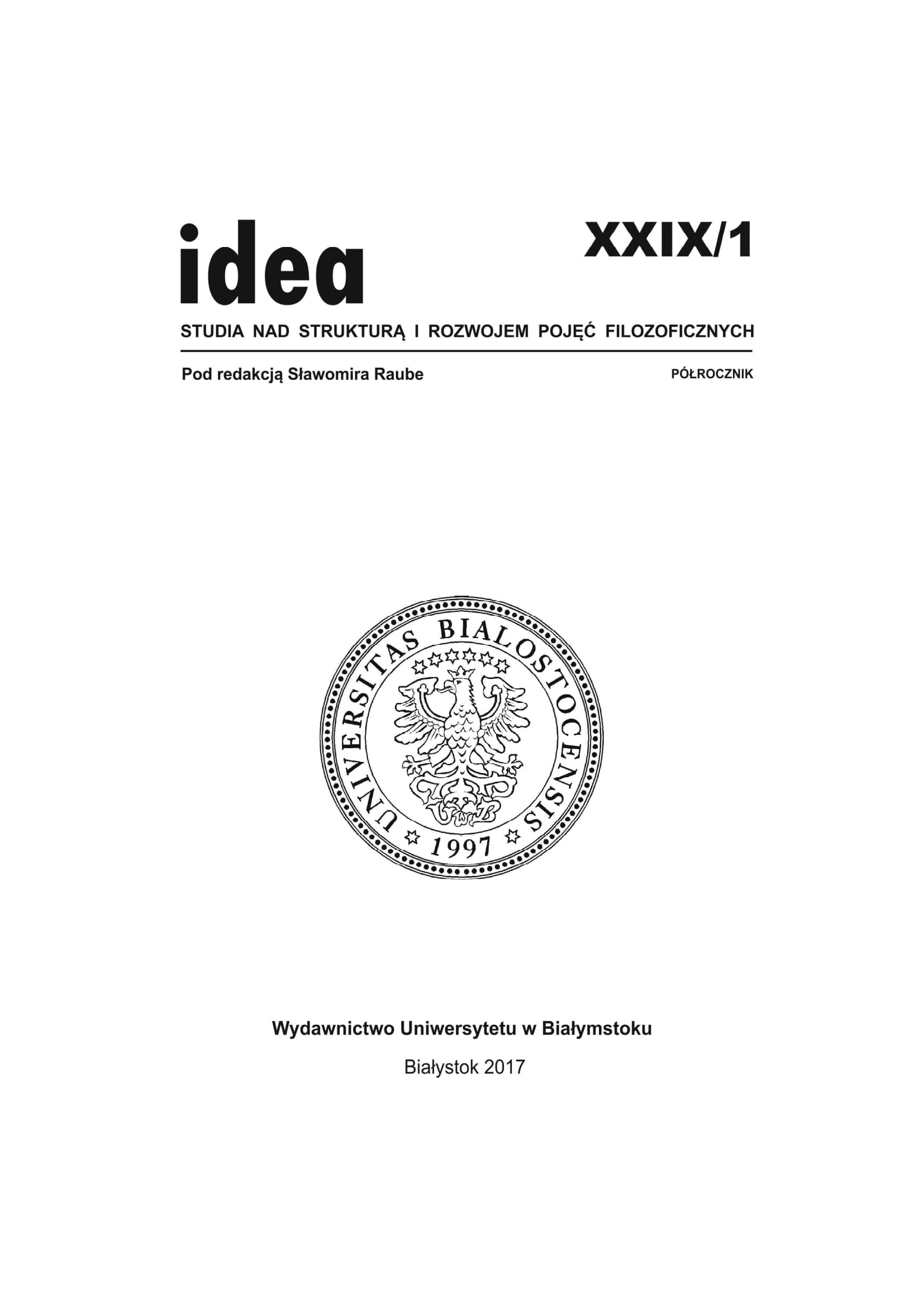Człowiek i Bóg w antropoteologii Mikołaja z Kuzy
Man and God in the antropotheology of Nicolas of Cusa
Author(s): Michał WęcławskiSubject(s): Philosophy, History of Philosophy, Philosophy of Middle Ages
Published by: Wydawnictwo Uniwersytetu w Białymstoku
Keywords: God; philosophy; theology; world; nature
Summary/Abstract: The paper is an attempt to answer a question about the shape of relations between the divine and the human in the philosophy of Nicholas of Cusa, and to reconstruct the way that leads him to their explication. A well-known and rather predictable theme concerning God’s greatness, man’s misery and a God-man exaltation putting this misery to an end achieves a specific form in Cusanus texts. It is characterized by a dialectical tension between the creator and the creation, the unity and the multitude, the whole and the parts, the absolute and the limited; seemingly incompatible categories connect, and that which seemed inexplicable becomes explained. Here a radical transcendence does not interfere, but connects with immanency, infinity of God does not exclude an infinite universe, and a principle “everything in everything” does not imply pantheism. The Highest One seems self-contradictory and it is only for learned ignorance (docta ignorantia) that one can sharpen a little their concept of Him. It teaches that every being carries inside a particle of that Being, existing in them by a contraction, so that the world, full of God, ceases to be a place of void and dreariness. Being a part of it, a man stands out through his intellect, by which he creates a world of his own, and is therefore appearing to be an earthly God, someone at the same time creating and created. Eventually however, this most perfect of all creatures turns out to be incapable of approaching God and it is only the most perfect of all men, Christ, who makes possible a deification (theosis) – a lasting participation of man in the godly nature through the ablation of every difference and otherness.
Journal: Idea. Studia nad strukturą i rozwojem pojęć filozoficznych
- Issue Year: 1/2017
- Issue No: XXIX
- Page Range: 97-113
- Page Count: 17
- Language: Polish

